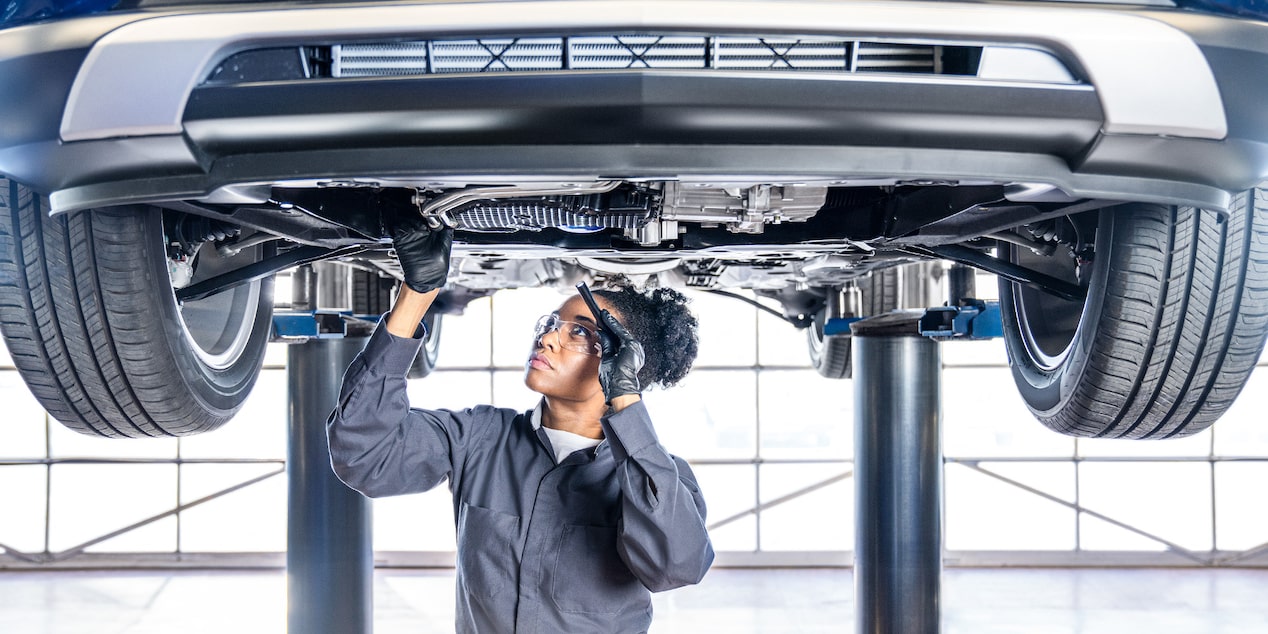All Categories
Featured

Understanding the elements that influence the expense of these repair work is crucial for car owners that want to be prepared for the unexpected. From the kind of repair work needed to the make of your car, several essential elements can identify just how much you'll pay for fixings.
- Kind of Repair service. The nature of the repair service plays a critical duty in the cost. Straightforward fixings, such as replacing a spark plug or brake pads, are usually less costly since they call for fewer components and less labor. On the other hand, repairs that entail complex systems like the transmission, engine, or electrical systems tend to be a lot more costly. These fixings often require even more specialized parts and experience, resulting in higher labor fees. In addition, if the repair service includes taking apart numerous elements, the labor costs can rise considerably.
- Make and Design of Your Automobile. The make and design of your car have a considerable influence on the rate of fixings. Deluxe and foreign cars, such as BMWs, Audis, and Mercedes-Benz, frequently featured greater fixing expenses because of their specialized components and the proficiency needed to deal with them. In comparison, more typical automobiles like Ford or Toyota typically have less pricey parts and are much easier for technicians to function on, which reduces repair service costs. Furthermore, some vehicles might need specific diagnostic devices or software for certain fixings, adding to the general cost.
- Parts Availability and Top Quality. The expense of the components needed for the repair work is one more significant variable. If you call for original tools producer (OEM) parts, you can expect to pay even more, as these are created particularly for your vehicle. While OEM parts offer a greater level of high quality and integrity, they include a premium cost. Additionally, aftermarket parts-- those made by third-party manufacturers-- are typically less pricey, yet may not always match the top quality or sturdiness of OEM components. The rarity of parts, especially for older or specialized vehicles, can likewise drive up the expense, as finding suitable replacements can require time and effort.
- Labor Prices. Labor prices are just one of the most significant contributors to the total price of vehicle repairs. These costs vary by area and service center, with urban locations generally billing higher prices as a result of overhead costs. Mechanic experience also influences labor costs-- much more experienced or specific specialists often tend to charge more for their services. The intricacy of the repair service likewise plays a duty; repair services that need more time or specialized understanding, such as servicing an engine or electrical system, will lead to higher labor charges. Labor is usually billed on a per hour basis, and some repairs can take a number of hours to complete.
- Extent of the Damage. The extent of the damages to your automobile is one more crucial consider identifying repair costs. The fixing might be relatively low-cost if the problem is minimal and minor to one component of the vehicle. If the damages is extensive and requires numerous components to be replaced or repaired, the cost will increase. For instance, a damaged timing belt may need replacing various other engine elements that were damaged at the same time, making the repair work a lot more expensive and complex. When major systems like the transmission or engine are affected, the repair service price can rise quickly because of the variety of components and the labor included.
- Car Age and Problem. Older vehicles have a tendency to need more constant repair work, and as components use out over time, the expense of those repairs can enhance. In enhancement, components for older designs may be more challenging to find, which can enhance both the price and time required for repair services.
- Place of the Repair Service Shop. The location of the repair store can likewise affect the cost of vehicle repairs. Labor rates in cities are usually greater than in country or much less densely booming areas. In addition, dealerships frequently charge extra for repair services contrasted to independent service center, although dealerships may use OEM parts and supply specialized service for your make and version. It's always an excellent concept to search and get several quotes to locate the ideal cost for the repair services you require.
- Insurance Policy and Guarantee Insurance Coverage. In some instances, extended warranties or solution strategies can aid cover fixings for particular parts of the automobile. In addition, if the repair is an outcome of a mishap, your cars and truck insurance plan may cover the price.

Final thought. A number of aspects influence the cost of major auto repair work, including the type of repair service, the make and design of your vehicle, the quality of the parts used, and labor fees. Recognizing these components can assist you far better prepare for repair prices and make more enlightened choices when it's time for a significant repair.
Latest Posts
Relax with Stunning Sunsets at Deauville Inn: Your Jersey Shore Getaway
Published May 19, 25
2 min read
Savor the Tastes of The other day's Pub
Published May 16, 25
1 min read
Discover Strathmere’s Seaside Haven: Enjoy, Dine, and Unwind at Deauville Inn
Published May 16, 25
2 min read